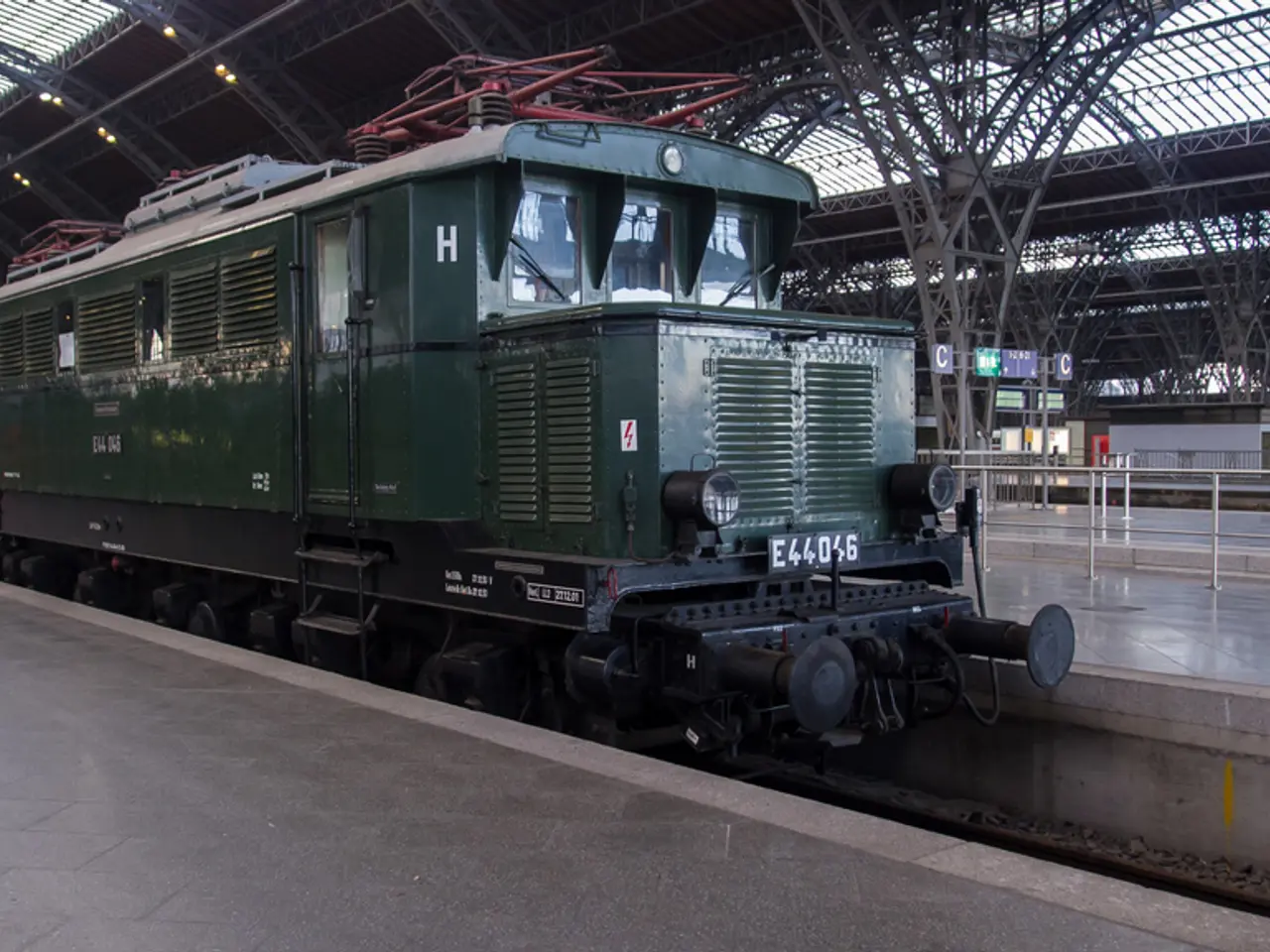Challenges Confronting the Committed Railway Manager in the Coming Years
The search for a successor to Richard Lutz as CEO of Deutsche Bahn (DB) is underway, with the appointment expected to take longer than anticipated due to several top railway experts rejecting the role[1]. Lutz was prematurely removed from the CEO position amid structural and personnel reorganization efforts initiated by Germany’s Federal Transport Minister, Patrick Schnieder, reflecting government pressure to modernize the company’s leadership[1][5].
As the new CEO steps into the role, they will face significant challenges. Deutsche Bahn has been grappling with years of under-investment in its infrastructure, which has contributed to frequent delays and disruptions in service[4]. The company is in the early stages of upgrading tracks and systems, likely causing further short-term disruptions.
In addition to addressing infrastructure issues, the new CEO must return Deutsche Bahn to profitability through strategic cost-cutting and targeted investments while improving punctuality, safety, efficiency, and economic operation, as per the government’s modernization goals for the state-owned rail operator[4][5].
The overhaul process has already begun, with the Riedbahn between Frankfurt and Mannheim undergoing renovation last year, and the Hamburg-Berlin route currently undergoing a major overhaul[6]. DB Cargo, the railway conglomerate's transport subsidiary, must turn a profit next year as dictated by the EU Commission, and is under particular pressure due to the unprofitable single wagon traffic[7].
Speculation about potential successors includes DB Regio CEO Evelyn Palla, former Finance Minister Jörg Kukies, and Michael Peter, CEO of Siemens Mobility[2]. The collective bargaining agreement with the GDL (Germany's largest railway trade union) expires at the turn of the year, and upcoming wage negotiations could potentially disrupt long-distance traffic and burden the start of the new railway CEO[3].
The new CEO’s performance will be closely evaluated based on factors such as customer satisfaction and the successful implementation of changes. However, securing adequate and reliable funding for the infrastructure in the coming years will be a crucial challenge[8]. The Bahn infrastructure has been neglected for decades, resulting in a massive investment backlog in the high double-digit billions[9].
Despite the criticisms from some transport experts, the concept of the Bahn overhaul is generally accepted in the industry[10]. The Bahn plans to overhaul around 40 heavily used routes by 2036, involving months-long closures for comprehensive modernizations[11]. The "Germany timetable" aims to eventually connect the main long-distance routes at half-hourly intervals, but this goal is currently unachievable due to funding constraints[12].
Federal Transport Minister Patrick Schnieder plans to present a new Bahn strategy on September 22, with a focus on satisfied customers[13]. The railway conglomerate has been posting losses for years, and the restructuring program initiated by Lutz in 2024 foresaw changes not only for infrastructure and operations, but also for the corporation itself, including job cuts and increased profitability[14].
Sources:
- Deutsche Bahn: Nachfolger von Lutz noch nicht festgestellt
- Deutsche Bahn: Kandidaten für den Nachfolger von Richard Lutz
- Deutsche Bahn: GDL-Tarifverhandlungen im Dezember
- Deutsche Bahn: Modernisierung und Rückkehr zum Gewinn
- Deutsche Bahn: Lutz entlassen, Schnieder will Modernisierung vorantreiben
- Deutsche Bahn: Modernisierung der Riedbahn
- Deutsche Bahn: DB Cargo muss Gewinn erzielen
- Deutsche Bahn: Finanzierung der Infrastruktur
- Deutsche Bahn: Investitionsbacklog in die Milliarden
- Deutsche Bahn: Kritik an der Bahn-Sanierung
- Deutsche Bahn: Sanierung von 40 Bahnstrecken
- Deutsche Bahn: Deutschland-Takt unrealistisch
- Deutsche Bahn: Schnieder will Bahnstrategie präsentieren
- Deutsche Bahn: Lutz initiiert Restrukturierungsprogramm
- The new CEO of Deutsche Bahn, at their helm, will need to ensure strategic investments in the company's neglected infrastructure to address under-investment issues and improve service efficiency, a critical concern within the transportation industry.
- To successfully meet the government's modernization goals, the new CEO must navigate complex financial challenges, particularly in balancing cost-cutting strategies with targeted investments for profitability and infrastructure improvements across both Deutsche Bahn and its profit-driven transport subsidiary, DB Cargo.




